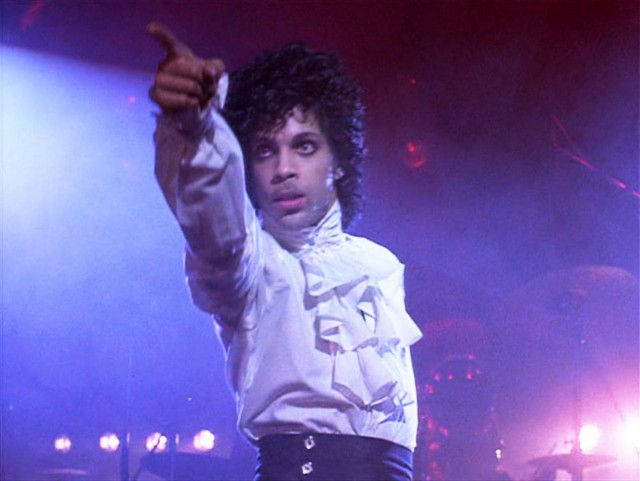Gordon Lightfoot Book, Music and More!
Movie Review: Purple Rain
PURPLE RAIN Directed by Albert Magnoli.
Purple Rain resembles its provocative singing star, Prince: it delights in breaking rules and raising eyebrows. While such anarchic behavior is the root of rock music, it is rare in rock films. They usually offer a safe and predictable storyline that is little more than background to the soundtrack. But Purple Rain cleverly integrates its sultry electronic funk music with a story of unexpected depth and emotion. It receives great support from Prince himself, the 24-year-old pop sensation from Minneapolis who, in his first, largely autobiographical film, vividly translates his charismatic stage personality to the screen.
Prince plays a struggling, moody musician known as the Kid. Onstage, as the leader of a hot young band called the Revolution, The Kid is a wild, commanding figure, bathed in purple lights, who thrills audiences with overt displays of sexuality. But offstage he is a shrinking violet, withdrawn and vulnerable. He lives with his parents in a domestic battleground where his black, troubled father (Clarence Williams III) flies into unexplained rages and vents his frustration physically on the Kid's tearful Italian mother (Olga Karlatos). Meanwhile, the Revolution faces tough competition in a rival band led by Morris Day, the Minneapolis funk star who plays himself. Then a mysterious, beautiful singer named Apollonia (Apollonia Kotero) arrives in town and captures the Kid's attention. Despite his increasingly tortured emotions and precarious career, the Kid also must deal with tragedy at home.
The plot sounds familiar, but the script, by William Blinn and first-time director Albert Magnoli, takes enough unexpected turns to keep its old story fresh. The writers have also made the Kid a believable antihero; dark and enigmatic, he displays under pressure the all-too-human qualities of selfishness, jealousy and violence. Unlike many youth films, which depict parents as one-dimensional villains, the Kid's father and mother emerge as tragic, sympathetic characters. And the songs, which Prince himself composed, actually enhance the plot. When the Kid sings, "Maybe I'm just like my father--too bold," he is expressing both a mature observation and a fear that he may be copying his father's violent tendencies.
But first and foremost, Purple Rain is a rock film, and its main purpose is to showcase Prince. The performance shots, awash in sensuous mauve and furious crimson, are exciting, sophisticated images. If the film has rough edges, they are due to its largely inexperienced cast and director. But Prince's infectious vitality carries the film. The excitement of watching a performer of such prodigious promise makes Purple Rain that rarity: a rock film that is at once powerful, refreshing and credible.
Maclean's August 13, 1984
By accepting you will be accessing a service provided by a third-party external to https://www.nicholasjennings.com/




